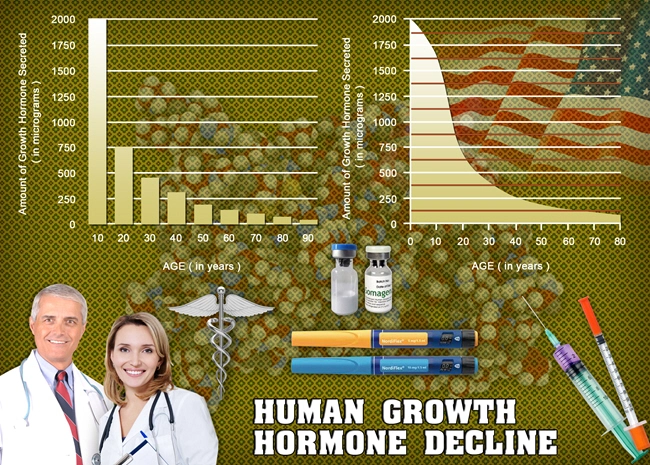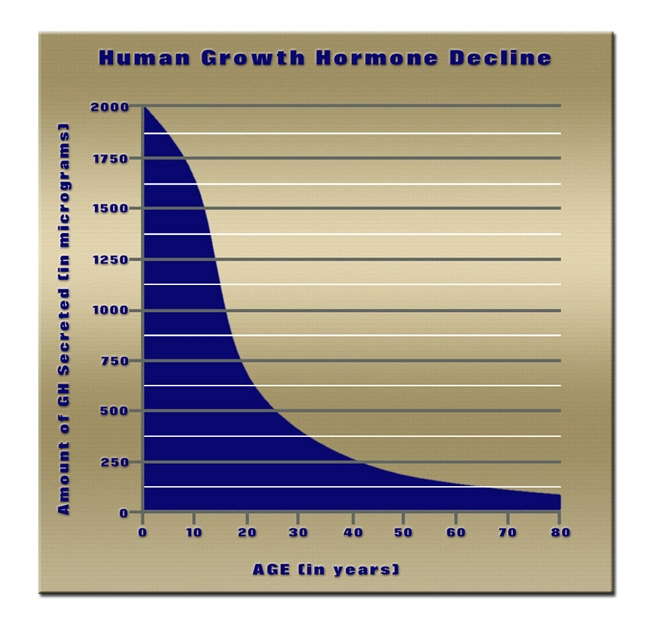
Introduction
Obesity is a significant public health concern in the United States, particularly among American males, where it is associated with an increased risk of various chronic diseases, including cancer. Recent research has begun to explore the potential protective effects of semaglutide, a glucagon-like peptide-1 (GLP-1) receptor agonist primarily used for the management of type 2 diabetes and obesity, on cancer risk. This article delves into the current understanding of semaglutide's role in potentially mitigating cancer risk in American males with obesity.
Understanding Semaglutide and Its Mechanism
Semaglutide is a medication that mimics the function of the naturally occurring hormone GLP-1, which is involved in regulating blood sugar levels and appetite. By activating GLP-1 receptors, semaglutide helps to lower blood glucose levels, reduce appetite, and promote weight loss. These effects are particularly beneficial for individuals with obesity, a condition that not only increases the risk of developing type 2 diabetes but also various types of cancer.
The Link Between Obesity and Cancer
Obesity is a well-established risk factor for several types of cancer, including colorectal, pancreatic, and prostate cancer, which are prevalent among American males. The mechanisms by which obesity contributes to cancer development are multifaceted, involving chronic inflammation, insulin resistance, and hormonal imbalances. Given these connections, interventions that effectively manage obesity could potentially reduce the risk of cancer.
Semaglutide's Potential Impact on Cancer Risk
Emerging research suggests that semaglutide may have additional benefits beyond weight management, including potential protective effects against cancer. Studies have indicated that GLP-1 receptor agonists, including semaglutide, may influence cancer risk through several pathways. These include reducing inflammation, improving insulin sensitivity, and possibly directly affecting cancer cell proliferation and apoptosis.
A recent study published in the *Journal of Clinical Oncology* explored the relationship between semaglutide use and cancer incidence in a cohort of obese American males. The findings suggested a lower incidence of certain cancers, such as colorectal cancer, among those treated with semaglutide compared to those who were not. While these results are promising, they highlight the need for further research to confirm these effects and understand the underlying mechanisms.
Clinical Implications and Future Directions
The potential of semaglutide to reduce cancer risk in American males with obesity opens new avenues for clinical practice. If confirmed, the use of semaglutide could extend beyond its current indications, offering a dual benefit of managing obesity and lowering cancer risk. However, it is crucial to conduct large-scale, long-term clinical trials to validate these findings and assess the safety and efficacy of semaglutide in this context.
Challenges and Considerations
While the prospect of using semaglutide to mitigate cancer risk is exciting, several challenges and considerations must be addressed. These include the need for personalized treatment approaches, considering individual risk factors and comorbidities, and the potential side effects of long-term semaglutide use. Additionally, the socioeconomic factors influencing access to such treatments must be considered to ensure equitable health outcomes.
Conclusion
The potential protective effects of semaglutide against cancer risk in American males with obesity represent a significant area of interest in medical research. As we continue to uncover the mechanisms by which semaglutide may influence cancer development, it is essential to integrate these findings into clinical practice thoughtfully. The ultimate goal is to improve the health outcomes of American males with obesity, reducing their risk of cancer and enhancing their overall quality of life.
Contact Us Today For A Free Consultation
Dear Patient,
Once you have completing the above contact form, for security purposes and confirmation, please confirm your information by calling us.
Please call now: 1-800-380-5339.
Welcoming You To Our Clinic, Professor Tom Henderson.

- The Semaglutide Revelation: Shaping the Future of Diabetes and Weight Management [Last Updated On: February 25th, 2025] [Originally Added On: February 25th, 2025]
- The Evolution of Semaglutide: A Journey from Laboratory Observations to Life-Changing Medicine [Last Updated On: February 26th, 2025] [Originally Added On: February 26th, 2025]
- Deciphering the Dynamics of Semaglutide: An Unraveled Exploration into GLP-1 Science [Last Updated On: February 27th, 2025] [Originally Added On: February 27th, 2025]
- Grasping the Metabolic Majesty: Semaglutide's Profound Influence Beyond Blood Sugar Levels [Last Updated On: February 28th, 2025] [Originally Added On: February 28th, 2025]
- Emerging Innovations: Unveiling Semaglutide as a Superior GLP-1 Agonist in 2024 [Last Updated On: February 28th, 2025] [Originally Added On: February 28th, 2025]
- Revolutionizing Diabetes Management: The Pioneering Role of Semaglutide [Last Updated On: March 1st, 2025] [Originally Added On: March 1st, 2025]
- Reimagining Diabetes Management: Semaglutide's Revolutionary Impact on Patient Lives [Last Updated On: March 2nd, 2025] [Originally Added On: March 2nd, 2025]
- Exploring Semaglutide: Its Role in Diabetes Management and Weight Loss Efficacy [Last Updated On: March 3rd, 2025] [Originally Added On: March 3rd, 2025]
- Semaglutide: Transforming Metabolic Health in American Males [Last Updated On: March 4th, 2025] [Originally Added On: March 4th, 2025]
- Semaglutide's Role in Preserving Beta-Cell Function for American Males with Type 2 Diabetes [Last Updated On: March 4th, 2025] [Originally Added On: March 4th, 2025]
- Semaglutide: Advancing Cardiovascular and Diabetes Management in American Males [Last Updated On: March 5th, 2025] [Originally Added On: March 5th, 2025]
- Semaglutide: Transforming Treatment for Diabetes and Obesity in American Males [Last Updated On: March 6th, 2025] [Originally Added On: March 6th, 2025]
- Optimizing Semaglutide Dosage for Diabetes and Weight Management: A Comprehensive Guide [Last Updated On: March 7th, 2025] [Originally Added On: March 7th, 2025]
- Semaglutide: Benefits, Risks, and Guidelines for American Men's Diabetes and Weight Management [Last Updated On: March 8th, 2025] [Originally Added On: March 8th, 2025]
- Semaglutide: Groundbreaking Tool in Obesity Management for American Men [Last Updated On: March 9th, 2025] [Originally Added On: March 9th, 2025]
- The Economic Landscape of Semaglutide: Analyzing Cost, Insurance Coverage, and Overall Value for American Males [Last Updated On: March 12th, 2025] [Originally Added On: March 12th, 2025]
- Real-World Applications of Semaglutide: Insights from Clinical Practice for American Males [Last Updated On: March 13th, 2025] [Originally Added On: March 13th, 2025]
- Unlocking the Potential of Semaglutide in Managing Metabolic Syndrome: A Comprehensive Guide for American Males [Last Updated On: March 15th, 2025] [Originally Added On: March 15th, 2025]
- Semaglutide: A Comprehensive Guide for American Males on Diabetes and Obesity Management [Last Updated On: March 16th, 2025] [Originally Added On: March 16th, 2025]
- Unlocking the Full Potential of Semaglutide: Expert Strategies for American Males [Last Updated On: March 16th, 2025] [Originally Added On: March 16th, 2025]
- Semaglutide: A Comprehensive Guide for American Males Managing Diabetes and Obesity [Last Updated On: March 17th, 2025] [Originally Added On: March 17th, 2025]
- Semaglutide: Transforming Lives of American Men Through Weight Loss Success Stories [Last Updated On: March 18th, 2025] [Originally Added On: March 18th, 2025]
- Semaglutide and Beyond: Innovations in GLP-1 Therapy for American Males [Last Updated On: March 18th, 2025] [Originally Added On: March 18th, 2025]
- Semaglutide: Lowering HbA1c and Aiding Weight Loss in Type 2 Diabetes Management [Last Updated On: March 18th, 2025] [Originally Added On: March 18th, 2025]
- Semaglutide: A New Hope for Appetite Control and Weight Management in American Men [Last Updated On: March 18th, 2025] [Originally Added On: March 18th, 2025]
- Semaglutide: A Comprehensive Guide for American Males on Diabetes and Obesity Management [Last Updated On: March 19th, 2025] [Originally Added On: March 19th, 2025]
- Semaglutide's Anti-Inflammatory Benefits: A New Hope for American Males [Last Updated On: March 20th, 2025] [Originally Added On: March 20th, 2025]
- Semaglutide: A Dual Benefit for Diabetes and Weight Management in American Men [Last Updated On: March 20th, 2025] [Originally Added On: March 20th, 2025]
- Semaglutide's Impact on Satiety Hormones for Weight Management in American Males [Last Updated On: March 20th, 2025] [Originally Added On: March 20th, 2025]
- Semaglutide: Revolutionizing Weight and Metabolic Health in American Men [Last Updated On: March 21st, 2025] [Originally Added On: March 21st, 2025]
- Personalizing Semaglutide Therapy for American Males: Dosage, Monitoring, and Lifestyle Integration [Last Updated On: March 21st, 2025] [Originally Added On: March 21st, 2025]
- Semaglutide: A Promising Treatment for NAFLD in American Men [Last Updated On: March 22nd, 2025] [Originally Added On: March 22nd, 2025]
- Semaglutide and Insulin: Complementary vs. Competitive Roles in Diabetes Management for American Males [Last Updated On: March 22nd, 2025] [Originally Added On: March 22nd, 2025]
- Semaglutide: Enhancing Lipid Profiles and Cardiovascular Health in American Men [Last Updated On: March 22nd, 2025] [Originally Added On: March 22nd, 2025]
- Semaglutide's Impact on Kidney Health in American Males with Type 2 Diabetes [Last Updated On: March 22nd, 2025] [Originally Added On: March 22nd, 2025]
- Semaglutide Side Effects: Management Strategies for American Males [Last Updated On: March 22nd, 2025] [Originally Added On: March 22nd, 2025]
- Semaglutide: A Comprehensive Solution for Diabetes Management in American Men [Last Updated On: March 22nd, 2025] [Originally Added On: March 22nd, 2025]
- Semaglutide: Revolutionizing Diabetes and Obesity Management for American Males [Last Updated On: March 23rd, 2025] [Originally Added On: March 23rd, 2025]
- Semaglutide Delivery Innovations: From Oral to Implantable Solutions for American Males [Last Updated On: March 23rd, 2025] [Originally Added On: March 23rd, 2025]
- Semaglutide: A Breakthrough in Weight Loss for American Men [Last Updated On: March 23rd, 2025] [Originally Added On: March 23rd, 2025]
- Semaglutide Enhances Sleep Quality in Diabetic Men: Mechanisms and Clinical Evidence [Last Updated On: March 24th, 2025] [Originally Added On: March 24th, 2025]
- Semaglutide: A Comprehensive Solution for Diabetes, Weight Loss, and Cardiovascular Health in American Males [Last Updated On: March 24th, 2025] [Originally Added On: March 24th, 2025]
- Semaglutide: Enhancing Life Quality for American Men with Diabetes and Obesity [Last Updated On: March 24th, 2025] [Originally Added On: March 24th, 2025]
- Semaglutide: A Breakthrough in Obesity Management for American Males [Last Updated On: March 25th, 2025] [Originally Added On: March 25th, 2025]
- Genetics Influence Semaglutide Response in American Males: Personalized Treatment Insights [Last Updated On: March 25th, 2025] [Originally Added On: March 25th, 2025]
- Optimizing Semaglutide Therapy: A Dietary Guide for American Men [Last Updated On: March 25th, 2025] [Originally Added On: March 25th, 2025]
- Semaglutide: Revolutionizing Health Management for American Males [Last Updated On: March 25th, 2025] [Originally Added On: March 25th, 2025]
- Semaglutide Therapy for American Males: Steps from Consultation to Long-Term Management [Last Updated On: March 25th, 2025] [Originally Added On: March 25th, 2025]
- Semaglutide's Role in Managing Diabetes and Obesity in American Males Across Specialties [Last Updated On: March 25th, 2025] [Originally Added On: March 25th, 2025]
- Semaglutide: Opportunities and Challenges in Adolescent Obesity Management for American Males [Last Updated On: March 25th, 2025] [Originally Added On: March 25th, 2025]
- Semaglutide: Discussing Diabetes and Weight Loss Treatment with Your Doctor [Last Updated On: March 25th, 2025] [Originally Added On: March 25th, 2025]
- Semaglutide's Real-World Efficacy and Safety in American Males: A Comprehensive Analysis [Last Updated On: March 26th, 2025] [Originally Added On: March 26th, 2025]
- Semaglutide: Revolutionizing Male Health in Endocrinology and Beyond [Last Updated On: March 26th, 2025] [Originally Added On: March 26th, 2025]
- Telemedicine Integration of Semaglutide Enhances Diabetes Management for American Males [Last Updated On: March 26th, 2025] [Originally Added On: March 26th, 2025]
- Semaglutide: A Dual-Action Solution for Diabetes and Obesity in American Men [Last Updated On: March 26th, 2025] [Originally Added On: March 26th, 2025]
- Semaglutide's Impact on Inflammation: Benefits for American Males' Health [Last Updated On: March 26th, 2025] [Originally Added On: March 26th, 2025]
- Semaglutide: A New Hope for Aging American Males' Health Challenges [Last Updated On: March 26th, 2025] [Originally Added On: March 26th, 2025]
- Semaglutide: Enhancing Energy and Vitality in American Men [Last Updated On: March 26th, 2025] [Originally Added On: March 26th, 2025]
- Semaglutide and Exercise: Synergistic Health Benefits for American Males [Last Updated On: March 26th, 2025] [Originally Added On: March 26th, 2025]
- Semaglutide: Clinical Insights for American Males on Diabetes and Obesity Management [Last Updated On: March 27th, 2025] [Originally Added On: March 27th, 2025]
- Semaglutide's Anti-Inflammatory Potential: A New Frontier in Men's Health [Last Updated On: March 27th, 2025] [Originally Added On: March 27th, 2025]
- Semaglutide Adherence Strategies for American Men: Enhancing Diabetes and Weight Management [Last Updated On: March 27th, 2025] [Originally Added On: March 27th, 2025]
- Semaglutide: A Comprehensive Guide for American Males on GLP-1 Therapy [Last Updated On: March 27th, 2025] [Originally Added On: March 27th, 2025]
- Semaglutide: Reducing Cardiovascular Risks in American Males with Type 2 Diabetes [Last Updated On: March 28th, 2025] [Originally Added On: March 28th, 2025]
- Semaglutide's Impact on Mental Health in American Men: Diabetes, Obesity, and Beyond [Last Updated On: March 28th, 2025] [Originally Added On: March 28th, 2025]
- Semaglutide's Long-Term Safety for American Males: Diabetes and Obesity Management [Last Updated On: March 29th, 2025] [Originally Added On: March 29th, 2025]
- Semaglutide's Role in Managing Postprandial Glucose in American Males with Diabetes [Last Updated On: March 30th, 2025] [Originally Added On: March 30th, 2025]
- Maximizing Semaglutide Benefits: Dosage, Diet, Exercise, and Holistic Support for American Males [Last Updated On: March 30th, 2025] [Originally Added On: March 30th, 2025]
- Semaglutide: Revolutionizing Obesity and Diabetes Treatment in American Men [Last Updated On: March 30th, 2025] [Originally Added On: March 30th, 2025]
- Semaglutide: Transforming Lives of American Men Through Weight Loss and Health Improvement [Last Updated On: March 31st, 2025] [Originally Added On: March 31st, 2025]
- Semaglutide vs. Other Medications: Weight Loss Options for American Males [Last Updated On: March 31st, 2025] [Originally Added On: March 31st, 2025]
- Navigating Insurance for Semaglutide: A Guide for American Males [Last Updated On: April 1st, 2025] [Originally Added On: April 1st, 2025]
- Semaglutide's Economic Impact on Healthcare for American Men with Type 2 Diabetes [Last Updated On: April 2nd, 2025] [Originally Added On: April 2nd, 2025]
- Semaglutide's Role in Preventing Diabetes in American Males: Latest Research and Implications [Last Updated On: April 4th, 2025] [Originally Added On: April 4th, 2025]
- Semaglutide and Behavioral Therapy: A Holistic Approach to Male Obesity Management [Last Updated On: April 6th, 2025] [Originally Added On: April 6th, 2025]
- Semaglutide Pharmacokinetics in American Males: Absorption, Distribution, and Clinical Implications [Last Updated On: April 7th, 2025] [Originally Added On: April 7th, 2025]
- Semaglutide's Impact on Lipoprotein Profiles in American Males: A Clinical Overview [Last Updated On: April 7th, 2025] [Originally Added On: April 7th, 2025]
- Semaglutide: Reducing Visceral Fat in American Males for Better Metabolic Health [Last Updated On: April 9th, 2025] [Originally Added On: April 9th, 2025]
- Semaglutide: Enhancing Exercise Performance and Metabolic Efficiency in American Males [Last Updated On: April 9th, 2025] [Originally Added On: April 9th, 2025]
- Semaglutide: A Holistic Approach to Managing Diabetes and Obesity in American Men [Last Updated On: April 9th, 2025] [Originally Added On: April 9th, 2025]








